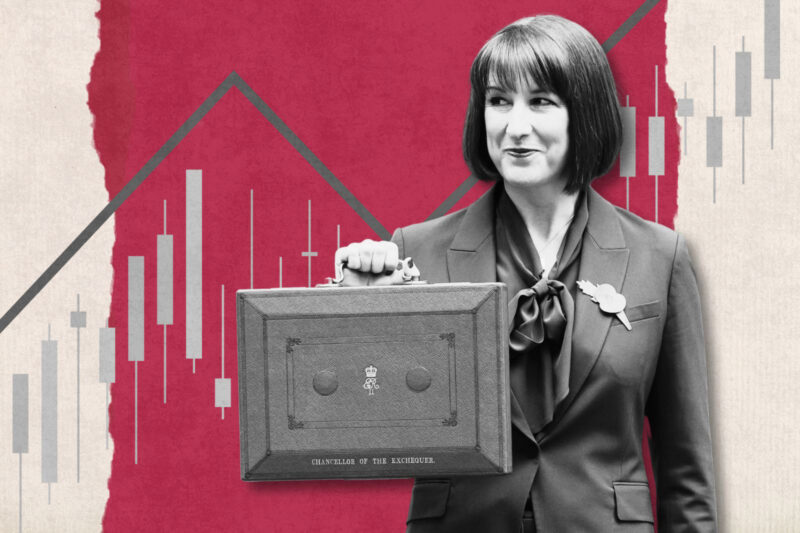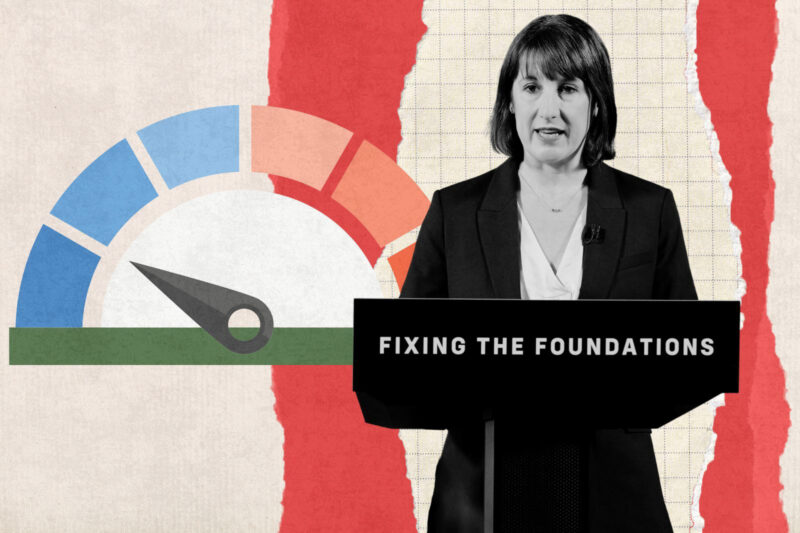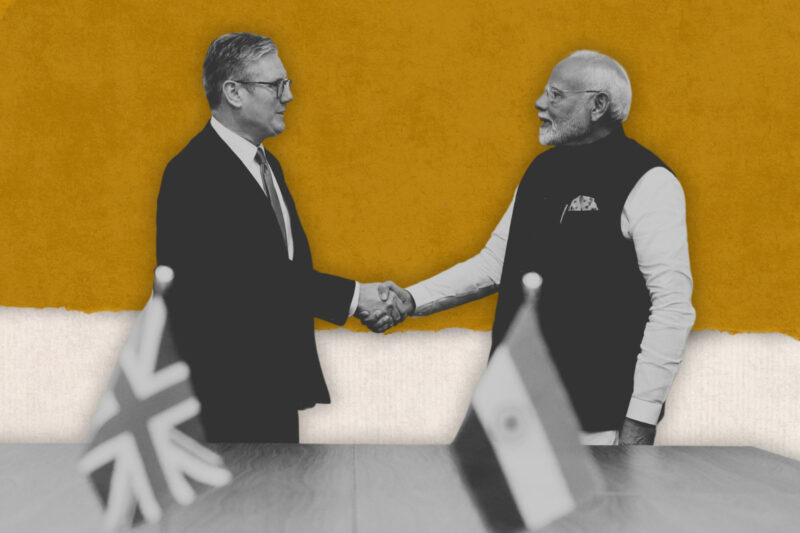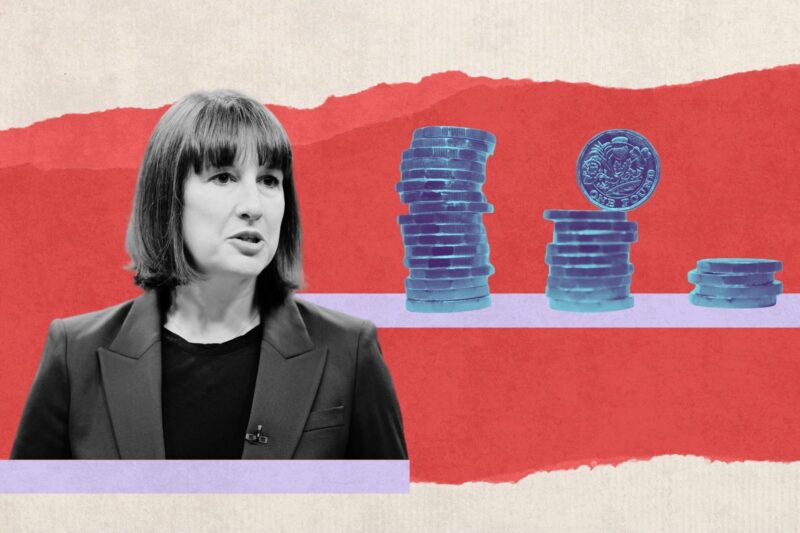On the economy, Starmer has boxed himself in. That isn’t (just) the Tories’ fault
The prime minister is warning of hard times to come, but he can’t blame everything on his predecessors
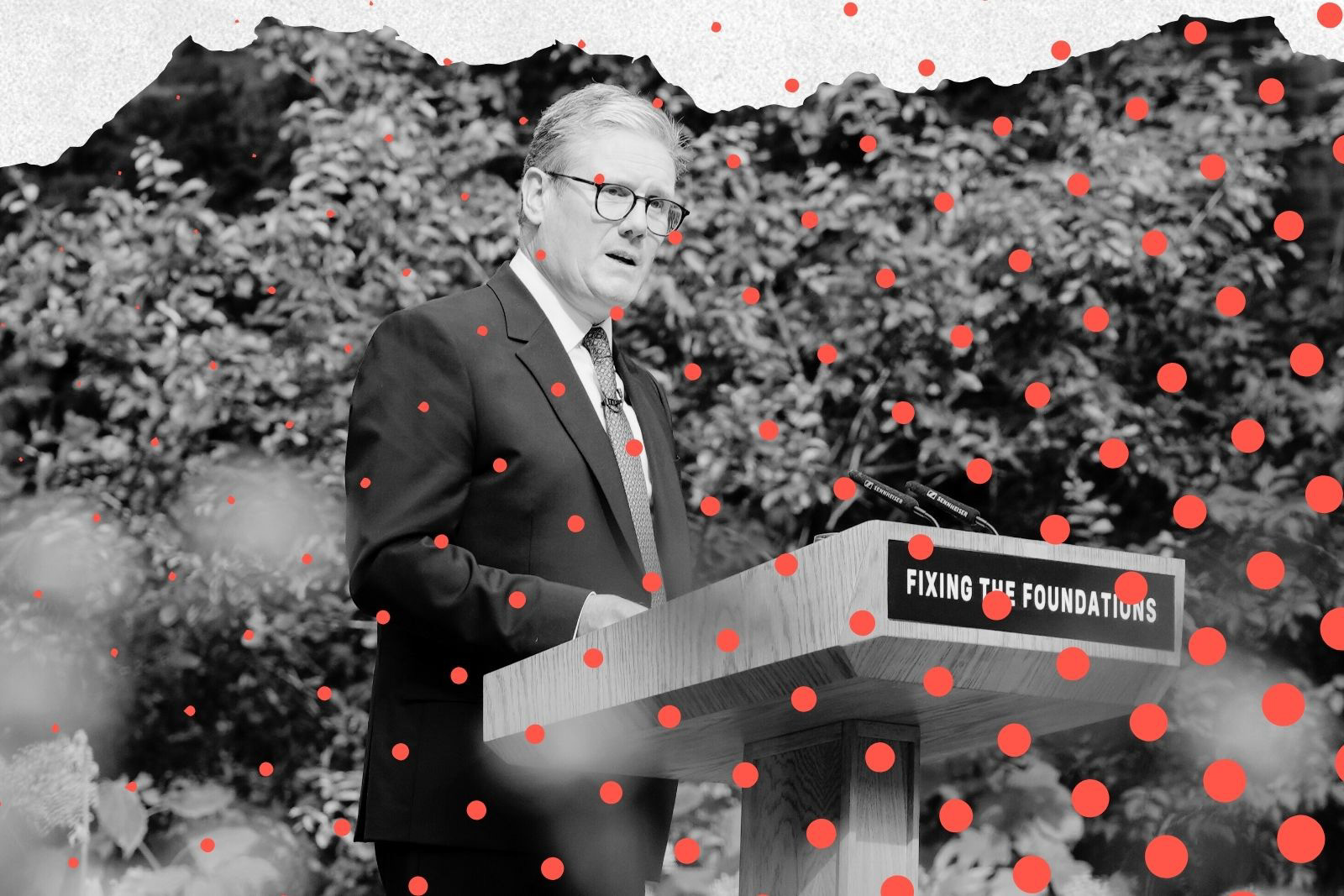
The sun may have been shining in the Downing Street rose garden, but a stern-looking Keir Starmer was adamant that the outlook for the UK is gloomy.
“Frankly, things will get worse before we get better,” he told reporters on Tuesday morning. Not exactly an awe-inspiring statement.
The new prime minister is managing expectations and he is right to emphasise that change will not happen overnight, but this is much more than that.
Since the moment Labour got into office, it has been blaming its predecessors for its inheritance, claiming that the economy, the justice system, the immigration system and the health service are all on the brink of collapse.
So far, major government announcements — with the exception of Great British Energy, Labour’s attempt to boost investment in renewable energy — have focused on how bad things are. Prisoners are being released early because the criminal justice system is going to collapse. Public finances are so bad that the winter fuel allowance has been scrapped for most pensioners. And we are being told more bad news is coming. All of this is because of the Tories, the government says.
Laying the groundwork for unpopular decisions in this way is hardly revolutionary. Even a former adviser in David Cameron’s administration has described it to me as “smart politics”. It is reminiscent of the strategy that Cameron and George Osborne followed as they embarked on their commitment to austerity.
Political cover is a valuable currency and Starmer’s speech sets the tone for what we should expect in the initial stages of his government. The July election was called before anyone was expecting it and a number of civil servants have told me that Labour is still finding its feet.
It certainly did not help that the government’s pre-season was dogged by racist riots — for which, again, it blames its predecessor. A “societal black hole” that led, in part, to the unrest is another problem Starmer says he and his cabinet must now fix.
Labour says everything is simply much worse than it could have known while in opposition. Starmer and the party clearly believe this is a window during which it can convince the British public that any unpopular policy choices are not Labour’s fault.
The party has been soft-launching what is likely to be an unpopular budget for weeks. Chancellor Rachel Reeves, for instance, said at the end of July that an emergency Treasury audit had revealed a £22bn black hole in public finances — a figure that seems to be supported by the Office for Budget Responsibility.
Influential thinktank the Institute for Fiscal Studies has been a little more guarded, agreeing that in-year spending had been higher than it appeared while the Tories were in office, but pointing out that it had spent the entire election campaign warning all parties that public finances were in a dire state, only to be practically ignored.
Labour figures are now repeating the line that they have inherited the worst economic conditions since the second world war — but, as several Tory sources have been keen to emphasise to me, there is a substantial difference between our economic conditions and public finances. With two successive quarters of economic growth, inflation within the Bank of England’s target range and the UK doing well compared to G7 counterparts, it is hard to argue that our economy is really in that bad a state.
The problem for the government is how to correct this. With the budget coming up towards the end of October, Labour keeps talking about “difficult decisions”, which is often political code for austerity and a period of pain for normal working people. That is partly because Labour has boxed itself in.
On the one hand, Starmer’s government has already committed to increased wages for public-sector workers while warning there is a black hole in spending. On the other, it has pledged to get the national debt down, which means it can’t simply increase borrowing. To stand still without breaking either of those pledges, it will either need to raise taxes, make cuts or do both. Having ruled out any hikes in income tax, national insurance or VAT, the room to move is small.
Those on the left, including the Green party, are pushing for more progressive taxes, saying the wealthiest should pay more and that Labour could be “bolder and braver” if it wanted. Ahead of the election, there were reports of Labour drafting options on wealth taxes, including changes to inheritance tax and capital gains tax, but these measures have not been mentioned since. The only real certainty being offered by the government is that pain is coming.
We have seen a smidgen of it already through the scrapping of the winter fuel allowance for the majority of pensioners — a policy that has not exactly been well received. A petition opposing the move by the charity Age UK has been signed by nearly half a million people and, as Ofgem hikes the energy price cap, there is mounting pressure on the chancellor to reverse it.
“We are alienating pensioners at our peril,” one Labour MP told me, while a number of pensioners we interviewed for ITV News told us they may have voted differently had they known this was coming.
Starmer is facing a major challenge. His claims that Britain has declined — and will decline further under his watch — might be accepted for a small pocket of time by the public, but they will expect improvements soon. With Labour’s majority appearing shallow and society clearly divided, he can ill afford not to deliver quickly, however much he blames the Tories.
Shehab Khan is an award-winning presenter and political correspondent for ITV News
 Newsletter
Newsletter


